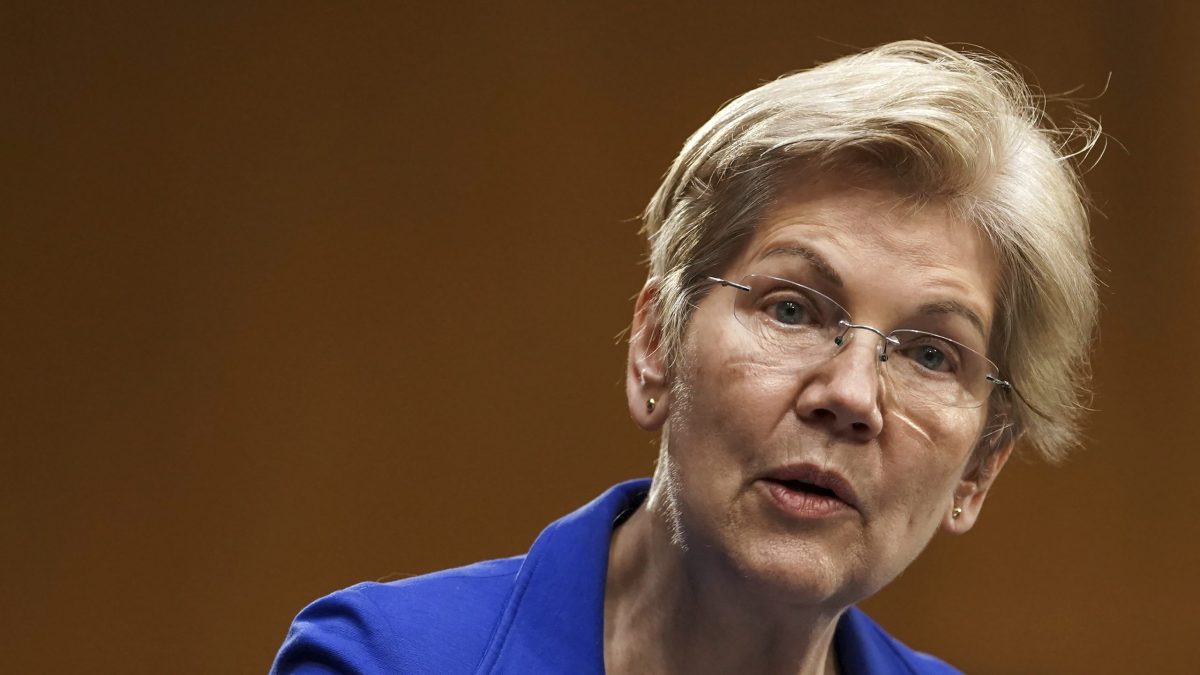Senator Warren Sounds Alarm on Crypto Bill Tied to Trump-Backed Token
06.05.2025 13:00 2 min. read Alexander Stefanov
A controversial stablecoin bill is now facing mounting opposition in Washington, with Senator Elizabeth Warren leading the charge against what she calls a pathway to “crypto corruption.”
The proposed legislation—known as the GENIUS Act—initially gained bipartisan traction but is now rapidly losing support as concerns over national security and regulatory loopholes intensify.
Warren has singled out a high-profile deal involving World Liberty Financial (WLFI), a firm reportedly connected to President Donald Trump, and MGX, a UAE-based company. The deal centers on a dollar-pegged token, USD1, and a massive $2 billion investment allegedly linked to Binance. Since the agreement was announced, USD1 has surged in activity and climbed the ranks to become one of the top stablecoins globally.
Warren warns that this arrangement could enrich political allies while circumventing oversight. She’s urging lawmakers not to greenlight a bill that could, in her words, legitimize shadowy partnerships and weak financial controls.
The backlash appears to be working—ten senators, including former supporters, have now backed away from the GENIUS Act, citing the bill’s vague enforcement provisions and exposure to foreign influence.
In the fallout, WLFI has paused plans to list its stablecoin on major exchanges, citing the need for regulatory clarity. But with political pressure mounting and the bill’s future uncertain, the project may lose momentum in a stablecoin market already dominated by giants like Tether.
A House vote was expected soon, but with Senate support evaporating, the GENIUS Act is now stalled—caught between calls for crypto innovation and fears of political profiteering.
-
1
California Sets Stage for Crypto Payments in Government Licensing
04.06.2025 18:00 2 min. read -
2
Crypto Bill Sparks Uproar Over Trump Ties and Regulatory Conflicts
06.06.2025 10:00 1 min. read -
3
EU Eyes DeFi Rules Without Defining What It Is
07.06.2025 18:00 2 min. read -
4
Switzerland Prepares to Join Global Crypto Tax Network by 2026
07.06.2025 20:00 1 min. read -
5
Trump’s CFTC Pick Pledges Crypto Regulatory Clarity for Blockchain’s Future.
11.06.2025 14:00 1 min. read
Europe Takes the Lead in Crypto as U.S. Stalls on Regulation
Europe is emerging as the new global crypto hub, propelled by its MiCA regulatory framework, which is attracting investors and platforms alike.
Norway Weighs Temporary Freeze on Crypto Mining to Conserve Energy
Norway may hit the pause button on cryptocurrency mining later this year. The government announced Friday it will study whether to impose a provisional ban on mining data centers, arguing that energy and grid capacity should be reserved for more pressing needs.
Wall Street Prepares for Stablecoin Integration as Regulatory Path Clears
Following the Senate’s approval of the GENIUS Act, U.S. financial institutions are signaling growing interest in stablecoins for settlement and payments.
Bangkok Opens Five-Year Tax Holiday for Crypto Traders
Bangkok has thrown new weight behind its digital-asset ambitions, carving out a five-year capital-gains tax holiday for Thais who sell cryptocurrencies such as Bitcoin through locally licensed exchanges.
-
1
California Sets Stage for Crypto Payments in Government Licensing
04.06.2025 18:00 2 min. read -
2
Crypto Bill Sparks Uproar Over Trump Ties and Regulatory Conflicts
06.06.2025 10:00 1 min. read -
3
EU Eyes DeFi Rules Without Defining What It Is
07.06.2025 18:00 2 min. read -
4
Switzerland Prepares to Join Global Crypto Tax Network by 2026
07.06.2025 20:00 1 min. read -
5
Trump’s CFTC Pick Pledges Crypto Regulatory Clarity for Blockchain’s Future.
11.06.2025 14:00 1 min. read


